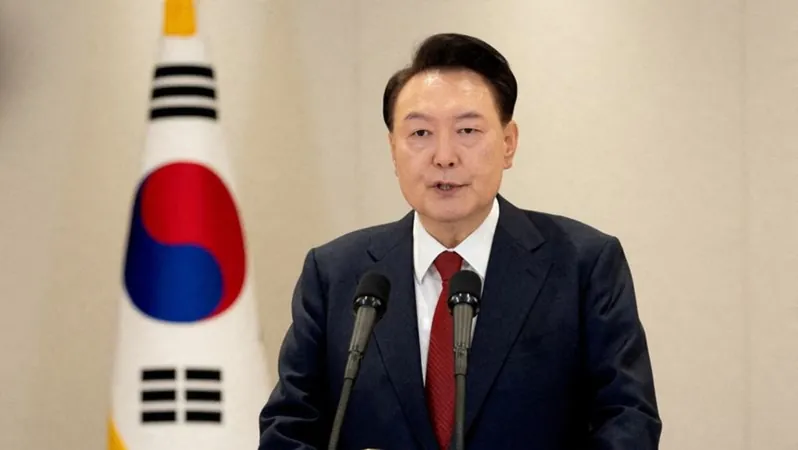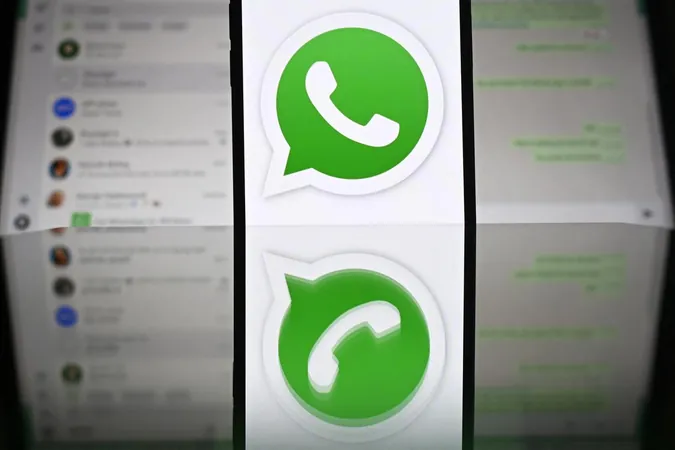
Turmoil in South Korea: Impeached President Yoon's Trial Begins Amid Political Chaos
2025-01-14
Author: Wei
SEOUL: The trial of impeached President Yoon Suk Yeol kicked off on Tuesday, January 14, with oral arguments focusing on his controversial attempt to impose martial law, which has plunged South Korea into its most significant political turmoil in decades.
Despite the gravity of the proceedings, Yoon, who has been largely secluded in his hillside villa, is not expected to attend the Constitutional Court session. The court has a deadline of 180 days to determine whether to permanently remove Yoon from office or restore his presidential powers. The next hearing is set for Thursday, and the uncertain atmosphere surrounding the trial raises questions about the future of South Korea's leadership.
Yoon is currently facing a criminal investigation over allegations of insurrection after he ignored multiple summons for questioning regarding his actions. His ill-fated declaration of martial law on December 3 lasted a mere six hours but has had lasting repercussions, igniting protests and a deepening national crisis.
Yoon's legal representative, Seok Dong-hyeon, stated that the impeached president's absence from court is due to ongoing attempts by authorities to detain him for questioning. The chief of staff to Yoon mentioned plans to facilitate a meeting with investigating authorities to prevent any confrontations during the execution of an arrest warrant. Options being considered include relocating Yoon for questioning or arranging a visit to his residence.
The situation escalated when authorities, including the Corruption Investigation Office for High-Ranking Officials (CIO) and the police, faced challenges following a standoff with presidential security personnel during their first attempt to detain him. A re-issued arrest warrant is now in effect, and investigators are seeking to ensure its peaceful execution; the police have requested cooperation from the Presidential Security Service (PSS).
Adding to the tension, the South Korean Defense Ministry confirmed that military forces responsible for presidential security would not be involved in the execution of the arrest warrant. This decision comes as North Korea launched several short-range ballistic missiles on the same day, possibly as a show of military capability amidst regional instability and coinciding with diplomatic engagements involving Japan and impending transitions in the US administration.
South Korean lawmakers highlighted that North Korea's missile tests may be intended as a signal to both the US and their own domestic audience, demonstrating their military readiness and possibly attempting to grab the attention of President-elect Donald Trump.
As the trial unfolds, South Koreans watch with bated breath, aware that the outcome could reshape the nation's political landscape and its relations with surrounding countries. Will Yoon manage to reclaim his power, or will this marked chapter of turbulence lead to an even greater shake-up in South Korea's democracy? Only time will tell.



 Brasil (PT)
Brasil (PT)
 Canada (EN)
Canada (EN)
 Chile (ES)
Chile (ES)
 Česko (CS)
Česko (CS)
 대한민국 (KO)
대한민국 (KO)
 España (ES)
España (ES)
 France (FR)
France (FR)
 Hong Kong (EN)
Hong Kong (EN)
 Italia (IT)
Italia (IT)
 日本 (JA)
日本 (JA)
 Magyarország (HU)
Magyarország (HU)
 Norge (NO)
Norge (NO)
 Polska (PL)
Polska (PL)
 Schweiz (DE)
Schweiz (DE)
 Singapore (EN)
Singapore (EN)
 Sverige (SV)
Sverige (SV)
 Suomi (FI)
Suomi (FI)
 Türkiye (TR)
Türkiye (TR)
 الإمارات العربية المتحدة (AR)
الإمارات العربية المتحدة (AR)